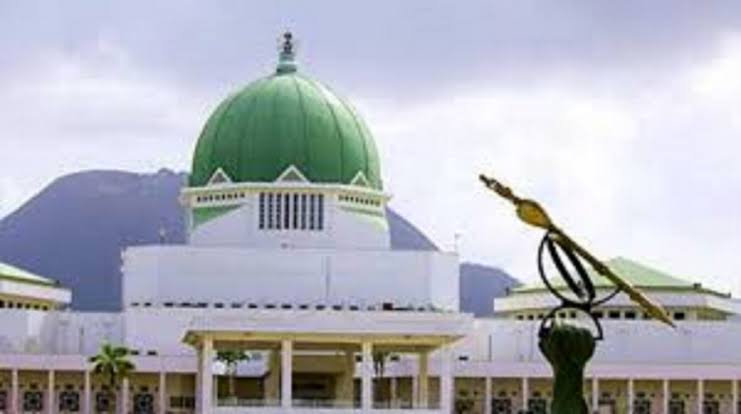By Iyojo Ameh.
Anytime critics argue that the Nigerian National Assembly has no clear significance in people’s lives due to the high level of hardship, some political mercenaries will argue otherwise and sometimes pick offence for the criticisms. Who is right and on what basis?
Sani Magaji started his leadership as acting Clerk of the National Assembly in 2022, following the retirement of Architect Amos Ojo. To assess his leadership, it would be fair to use developments at the National Assembly, especially cooperation and welfare of staff.
Peaceful coexistence
Compared to previous administrations, there has been peaceful coexistence of parliamentary union and management of the National Assembly especially in terms of welfarism. There is no record of protest since Magaji assumed office.
The only time the Parliamentary Staff Association of Nigeria (PASAN) opposed the leadership of Magaji as CNA was after the two chambers passed a bill to extend the tenure of service legislative staff at the National Assembly from 35 to 40 years and their retirement age from 60 to 65 years.
But, the parliamentary union later supported the extension.
NASS Library
The construction of the National Assembly library started during the 9th Assembly under the chairmanship of Ahmed Lawan as senate president and Femi Gbajabiamila as speaker of the House of Representatives.
It was completed and commissioned last in May to commemorate the nation’s 64th Independence Anniversary. It is serving members of the staff and the public.
The library was named after President Bola Tinubu and It is now to be called “Senator Bola Ahmed Tinubu Building.”
Construction of hospital
The clinic of the National Assembly was renovated to a standard taste. Aside from the renovation, the management constructed another 50-bed facility for staff members and visitors.
The medical center is also equipped with medical personnel.
Renovation
Aside from the medical facilities, the National Assembly management completed renovation of the two chambers.
Bill to extend tenure
There have been arguments and a series of debates on the bill to extend tenure of legislative staffers. The bill is specifically seeking to extend the tenure of service of legislative staff at the National Assembly from 35 to 40 years and their retirement age from 60 to 65 years.
It was first introduced during the 7th Assembly. It was transmitted to the 8th Assembly and subsequently to the 10th Senate.
When the bill was first debated on the floor of the senate in February, the majority of the senators disagreed with it because it would be cost-effective and there would not be an opportunity to employ and train new entries. The decision of the majority of the senators forced the upper chamber to step down the bill and direct further research and consultation with stakeholders.
A week after, the bill came up in the Senate again and was passed. The same also happened at the House of Representatives. The Senate Leader, Opeyemi Bamidele, chaired the conference committee to harmonise the effectiveness of the bill between the two chambers.
Amidst the passage, some groups, including the Parliamentary Staff Association of Nigeria (PASAN) criticised it but all the aggrieved parties later supported the tenure extension.
Later in September, seven months after the two chambers passed, President Bola Tinubu declined the bill. Mr Tinubu cited “careful examination and consultation” as reasons for his decision.
On a close look, the large number of legislative officials who have retired between 2022 till date and those who are to be retired soon may affect effective legislative activities at the National Assembly especially in the aspect of handling official documents.
Previous extensions
Extension of tenure in the civil service is not a new agitation.
In June, President Tinubu signed a bill to raise the uniform retirement age for judicial officers in Nigeria to 70 years.
Before now, state and federal high court judges must quit the bench once they clocked 65. Similarly, judges of the National Industrial Court and Sharia and customary courts of appeal must retire at 65, while judges of both the Court of Appeal and the Supreme Court can remain on the bench till they are 70.
But with the bill signed into law by President Tinubu, the retirement age of all the judges has been uniform.
Former president Muhammadu Buhari extended the retirement age of teachers from 60 to 65 years and their period of service from 35 to 40 years.
In 2012, former president Goodluck Jonathan,
increased the retirement age of staff in the professorial cadre in the universities from 65 years to 70 years and polytechnic and College of Education lecturers from 60 to 65.

